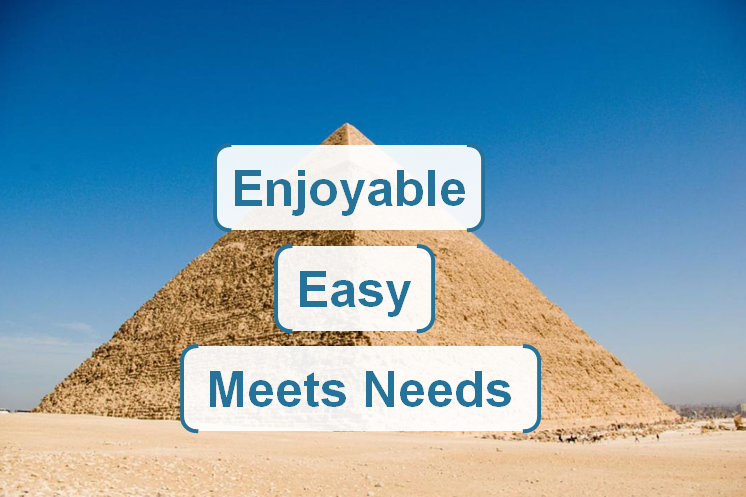Strive For A Stress-Free Customer Experience
For years, Forrester has been talking about customer experience in terms of a pyramid. While Forrester defines customer experience as simply "how customers perceive their interactions with your company," we also subdivide this overall experience into three key aspects. First, and the base of the pyramid, is that an experience must meet a customer's core needs. Next, it must be easy for them to accomplish their goals. And last, and most difficult, the experience should be enjoyable. If an experience isn't inherently something that actually can be enjoyable — think renewing your car insurance — then the top of the pyramid is about creating delight from an experience that could be really awful.

It's this last element I want to focus on, by way of a story. Recently I was going to be presenting at a conference overseas, and though I travel extensively around Asia Pacific, I had not yet visited this particular country. But the consulate for that country in Australia (where I live) requires business visitors to apply for a visa in the old-fashioned kind of way — standing in line with an application (even if you filled it out online), your passport, and payment for the visa.
Now, I want to stop here, and say the following: This could have been a really bad experience. It wasn't. I knew there would be a wait time, but I learned a long time ago from a university professor that one should always carry a book in the event that just such an occasion could arise. So I had my book and my iPad and was able to keep up with emails and the time passed quickly. The context of the experience was set appropriately, and so all was well (I wrote about "Contextual Customer Experience" in a recent blog post found here).
Without deconstructing the rest of my visa application experience too much, I fell into a set of special circumstances, and so extra trips to the consulate and the visa office were required. And information about visa processing times — critical to me to know if I would be able to get on a plane or not for the conference — were not clear. I had no idea if my visa was going to be processed in time, and there was no way to find out.
So when my visa came through after only four business days, with plenty of time to spare before my flight, I was delighted. Why was I delighted? I was delighted because suddenly the burden of stress I'd been carrying for the previous week was dispelled. I didn't have to cancel my trip. I didn't have to make arrangements to find a replacement for my speaking slot at the conference. I didn't have to try to get a refund for my flight (which I couldn't remember whether was a refundable ticket or not). Each of these tasks represented a significant burden of unaccounted time in a schedule that was already quite full. In short, stress!
So in this context, an enjoyable experience would actually have been one that anticipated and prevented my stress.
The takeaway: In many critical transactions (e.g., a mortgage application), not providing the right helpful and accurate information at the right time will create doubt in the customer that can lead to stress. Stress can make customers perceive an otherwise smooth transaction as a poor experience . . . one that they will likely remember negatively, despite a positive result.